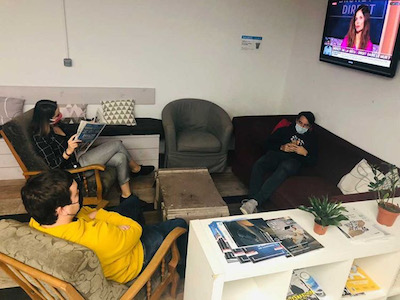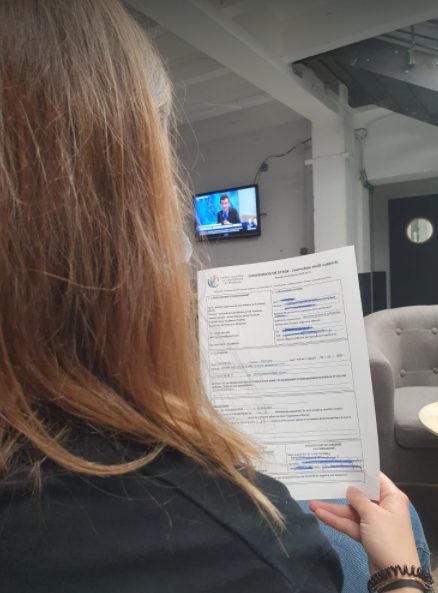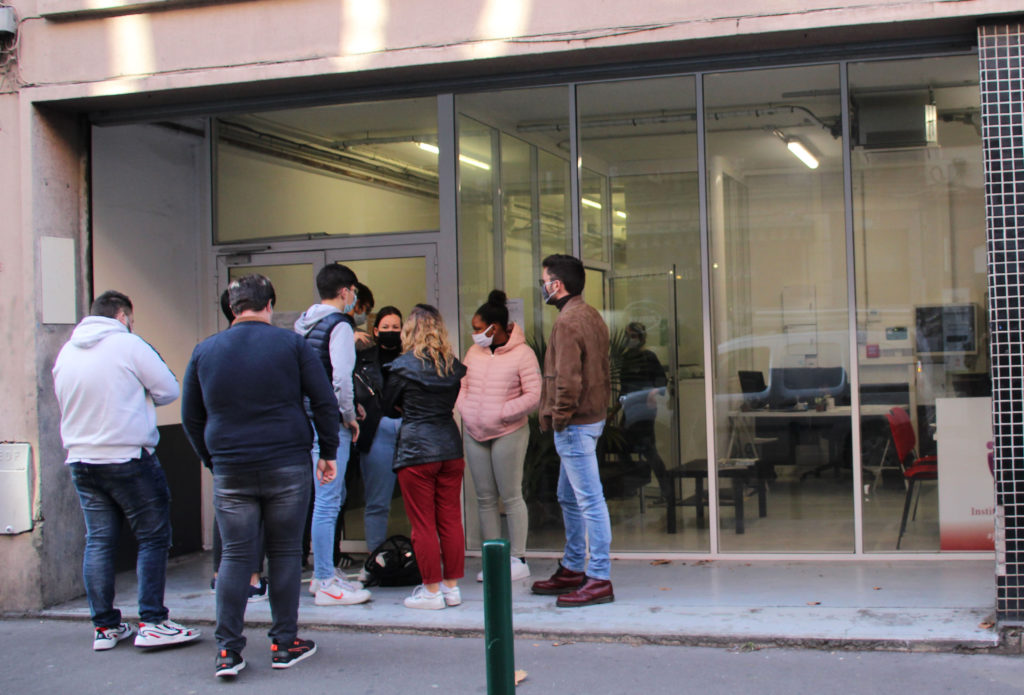
Every years, they are a lot to dream about a career of journalism but the job is not that close. The reality of profession sometimes hold back young students in difficulties. Admission, school feese, search of internship and find a job, the way is full of entanglement.
Among the thirty journalism schools, on behalf of the ISJT of Toulouse, which guarantees students a general journalist training in 5 years. The opportunity to meet some of them and to discover their motivation but also their doubts. « I’ve always wanted to do journalism, I’ve never seen myself doing anything else, » explains Tristan. He directly joined the establishment after the baccalaureate. A different path from her classmate, Nina « I did some science prep at the same time I was doing a history degree ». But the student failed the IEP exams and ended up headed to Toulouse school. One choice does not regret, because the training allows him to get closer to the objectives: to become an investigative journalist. But more than journalism courses, it’s the experience that counts.
Internship gate
This is why the ISJT imposes a minimum of internship time on their students. What to discover the profession but also to confront the realities on the ground and the difficulty of get the first internships.« I have a lot of trouble for the stages because I am quite demanding » confides Nina, whose ambition is to join the major national editorial staff as le figaro, Marianne or even Courrier International.
The search for an internship can sometimes prove to be a « stress » factor, as for Mathieu : « Regarding internships the more I advance the more complicated it is to find internships ». Once the internship has been found, the worries do not stop there, you have to adapt to the editorial staff and to conditions that are not very rewarding.
« The problem is that he always tells us that he does not have the budget for recruiting us, plus the lack of salary. This is not normal especially when you provide quality work and you are competent » , laments the 2nd year student. An observation shared by his classmate Lucie « I did an internship at La Dépêche as a correspondent in a small village and the problem was that there were only three of us and I never had any feedback on my work ». When she finally gets a long time replacement in Sud Ouest, the COVID-19 crisis jeopardizes her plans.
The big jump
Once the internships have been validated, a new test is helping these young journalists : professional integration, « I’m worried about the future, especially when you see how is complicated it can be to get an internship and then a job … » notes Lucie, particularly with the crisis and the waves of layoffs linked to the coronavirus. Beyond the crisis, other concerns emerge immediately after graduation, such as freelance status often the first way out for the newly graduated student.
The problem is, if the status of freelancer allows you to learn quickly, it is often synonymous with precariousness, wages from one month to the next are not fixed. But in this fog of early working life, the luck factor is not negligible. This is the case with Bastien, a former student at the ISJT school : « You have to constantly show your motivation. After an internship at Actu Rugby and Actu Toulouse, I continued along with the lessons to offer freelance writing. Immediately after obtaining my diploma I was hired at Actu Toulouse » before continuing: « I think that everything is playing out a lot on the last internship which still favors hiring. » Despite all the difficulties encountered over the years of study, the path of journalism still held by young people remains « knowing how to trust and set goals. » Nina concluded.
Camille Heurtebise Garnier & Cheikh Mbengue


